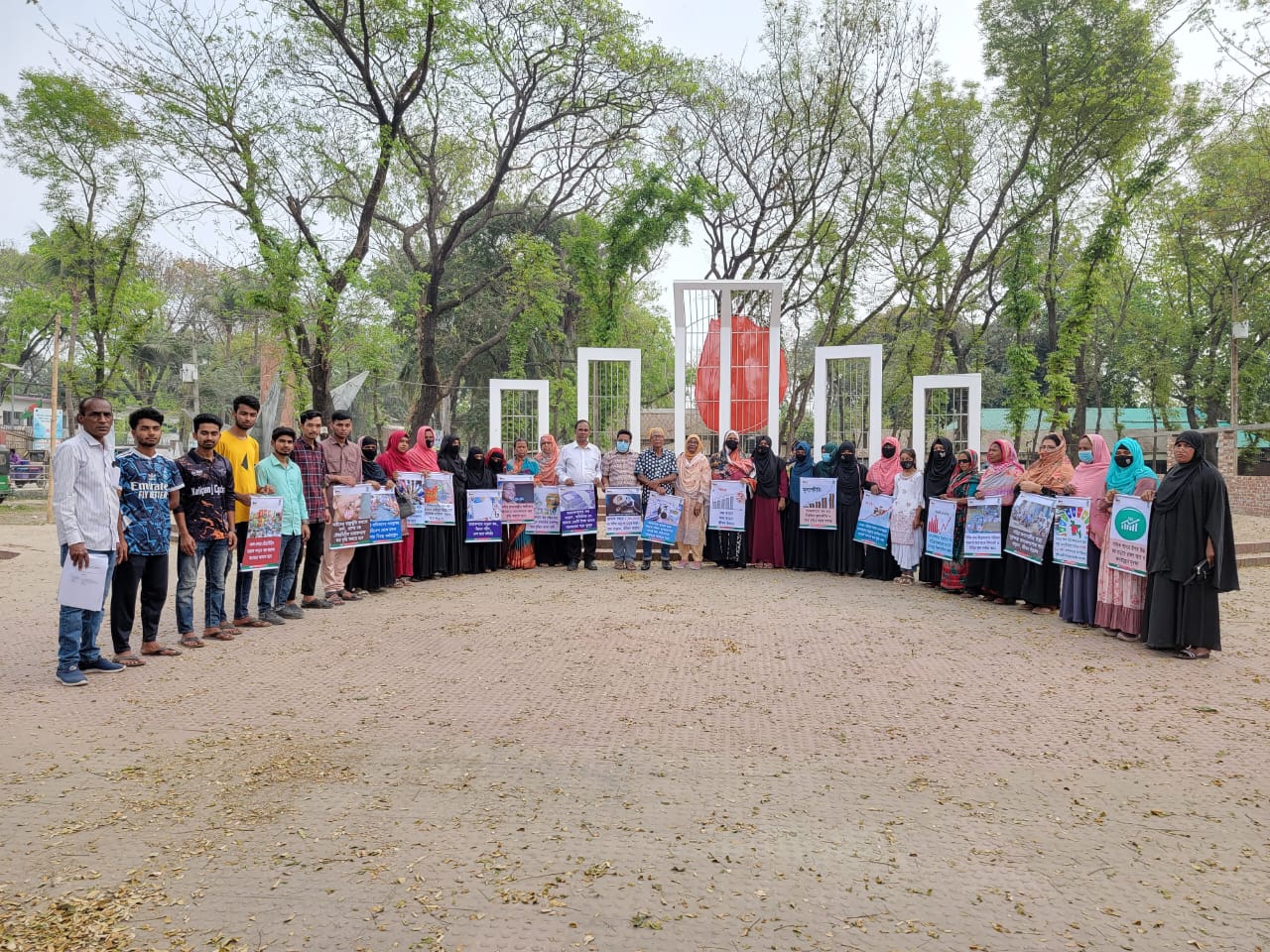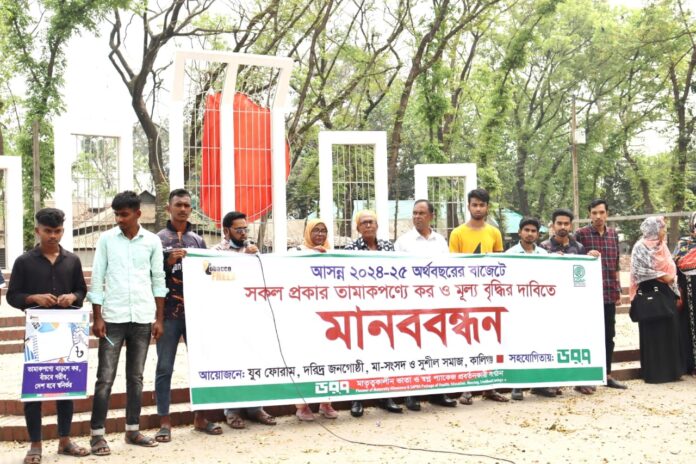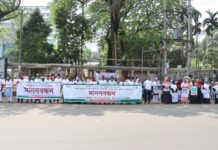Demanding a higher tax rate to increase the price of tobacco products exponentially, a human chain programme took place in Kaliganj upazila of Gazipur on Thursday (March 14, 2024) in order to protect public health and to implement the pledge to make Bangladesh tobacco-free before 2040 announced by the Honorable Prime Minister in the upcoming 2024-25 fiscal year budget.
According to the World Health Organization research on tobacco use in Bangladesh, if the Bangladesh government reforms the existing tax system on tobacco products in the fiscal year 2024-25, tobacco consumption will decrease from 15.1% to 13.80%. About 15 lakh adults will be encouraged to quit smoking and about 10 lakh youth will be discouraged to start smoking and in the long run 5 lakh 37 thousand adults and 5 lakh 40 thousand youth will be prevented from premature death.

Reforming the taxation system through the introduction of specific taxes recommended by the World Health Organization (which is common in most countries of the world) will strengthen the effectiveness of the cigarette taxation framework.
At the event, organized by the DORP Youth Forum, Mothers’ Parliament and local civil society in collaboration with the Development Organization of the Rural Poor (DORP), the speakers raised three specific proposals for tobacco-tax and price hike in the upcoming 2024-25 fiscal year budget.
These are –
1. Introduction of specific excise (supplementary) duty based on price level with uniform carver on all cigarette brands (supplementary duty 65% of final retail price) i.e., imposition of specific supplementary duty of Tk 37.40 with retail price of Tk 60 per 10 cigarettes at lower level; 52.50 specified supplementary duty levying a retail price of Tk 80 per 10 cigarettes at the middle level; 84.5 specific supplementary duty levied at the higher level fixing the retail price of 10 cigarettes at Tk 130; and imposing a specific supplementary duty of Rs 110.50 fixing the retail price of Tk 170 per 10 Stick cigarettes at the premium level.
2. Introduction of specific excise (supplementary) duty on filtered and unfiltered beedis with uniform carver (supplementary duty 45% of final retail value) i.e., imposition of specific supplementary duty of Tk. 11.25 fixing the retail price of 25 Stick beedis without filter at Tk. 25; and imposing a specific supplementary duty of Tk.9.00 fixing the retail price of 20 Stick bidis with filters at Tk.20.
3. Introduction of specific excise duty (supplementary duty 60% of final retail value) along with tax and price increase on jorda and gul i.e. fixed retail price of jorda at Tk55 per 10 grams and levy of specific supplementary duty of Tk33; And imposing a specific supplementary duty of Tk 18.00 fixing the retail price of gul at Tk 30 per 10 grams.
Kaliganj Upazila Press Club President Ashraful Alam Ayyub said, “If the proposals mentioned in the budget for the fiscal year 2024-25 are implemented, the revenue from this sector alone will be about Tk 47,000 crore, which is about 28% more than the previous year.”
Kaliganj Municipal Commissioner Kanta Bhuiyan said, “Increasing the price of tobacco products through tax hike is an internationally followed method to discourage tobacco use. But the current tobacco tax structure of Bangladesh is not effective in reducing tobacco consumption. Due to the lack of effective taxation, tobacco products are becoming very cheap and readily available in Bangladesh. So, increasing tobacco tax is the need of the hour.”
Kaliganj Upazila Press Club General Secretary Abdur Rahman Arman commented that due to having four levels of cigarettes, cigarette users are getting an opportunity to choose relatively cheap cigarettes instead of giving up cigarettes.
DORP Youth Forum member Mohammad Rana said, “Effectively increasing taxes on tobacco products will be a breakthrough step to achieve a tobacco-free Bangladesh by 2040 as announced by the Hon’ble Prime Minister”.
DORP Mothers’ Parliament Speaker Jannatun Nahar commented that to prevent the youth from smoking, the tax rate on cheap bidis and cigarettes should be increased massively so that they are no longer affordable.
Abdus Salam Miah, Programs Manager, Campaign for Tobacco Free Kids, said, “As low-end cigarettes and bidis remain affordable despite tax increases in the current structure, policymakers should introduce specific and effective taxes. To protect the health of the general population, especially the low-income population, the price of tobacco products should be increased by raising taxes so that they are beyond the reach of the people.”
































